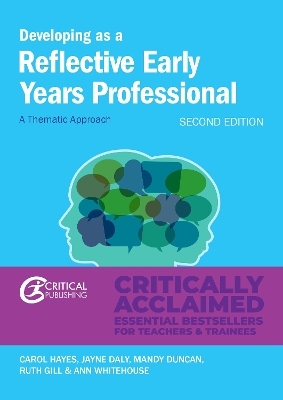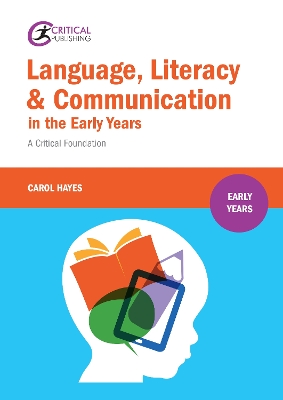Early Years
2 total works
Developing as a Reflective Early Years Professional
by Carol Hayes, Jayne Daly, Mandy Duncan, Ruth Gill, and Ann Whitehouse
This book guides students and practitioners through the wealth of information on cognition and language development by breaking the area down into manageable chunks and drawing these together into a full understanding of the holistic nature of child development. Children with communication difficulties are at risk of poor outcomes educationally, socially and in employability. Whilst there may be a range of interventions which can help children, it is the practice of those working with them that is the key to success. Therefore a firm understanding of communication development and the ability to adapt teaching to support children’s individual needs are vital.
The text offers a balanced approach to the theories and research into the development and acquisition of language and literacy in the early years. It examines how practice can be improved and the impact that language and literacy development has on learning outcomes. It also, importantly, addresses the particular pedagogy related to bilingual and multilingual learners. Carefully structured activities are provided and the text clearly relates theory to practice. Pedagogical features encourage a questioning, challenging and reflective approach, promoting critical thinking throughout.

